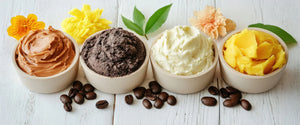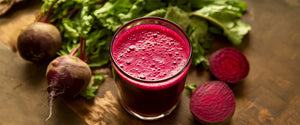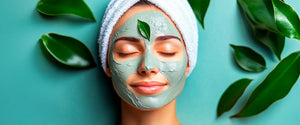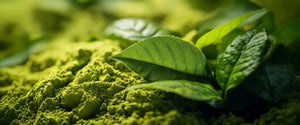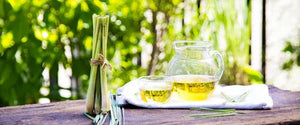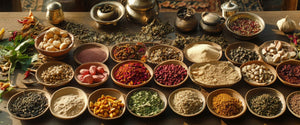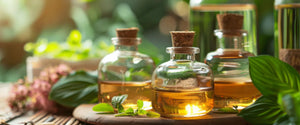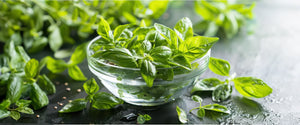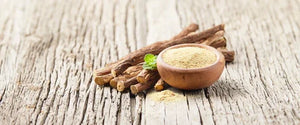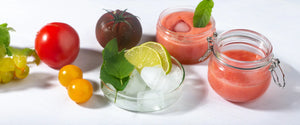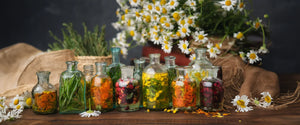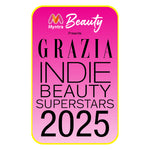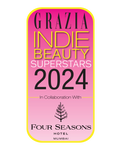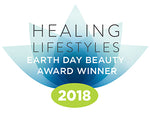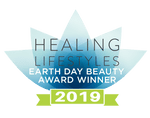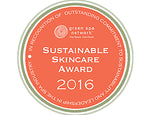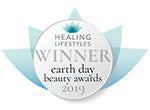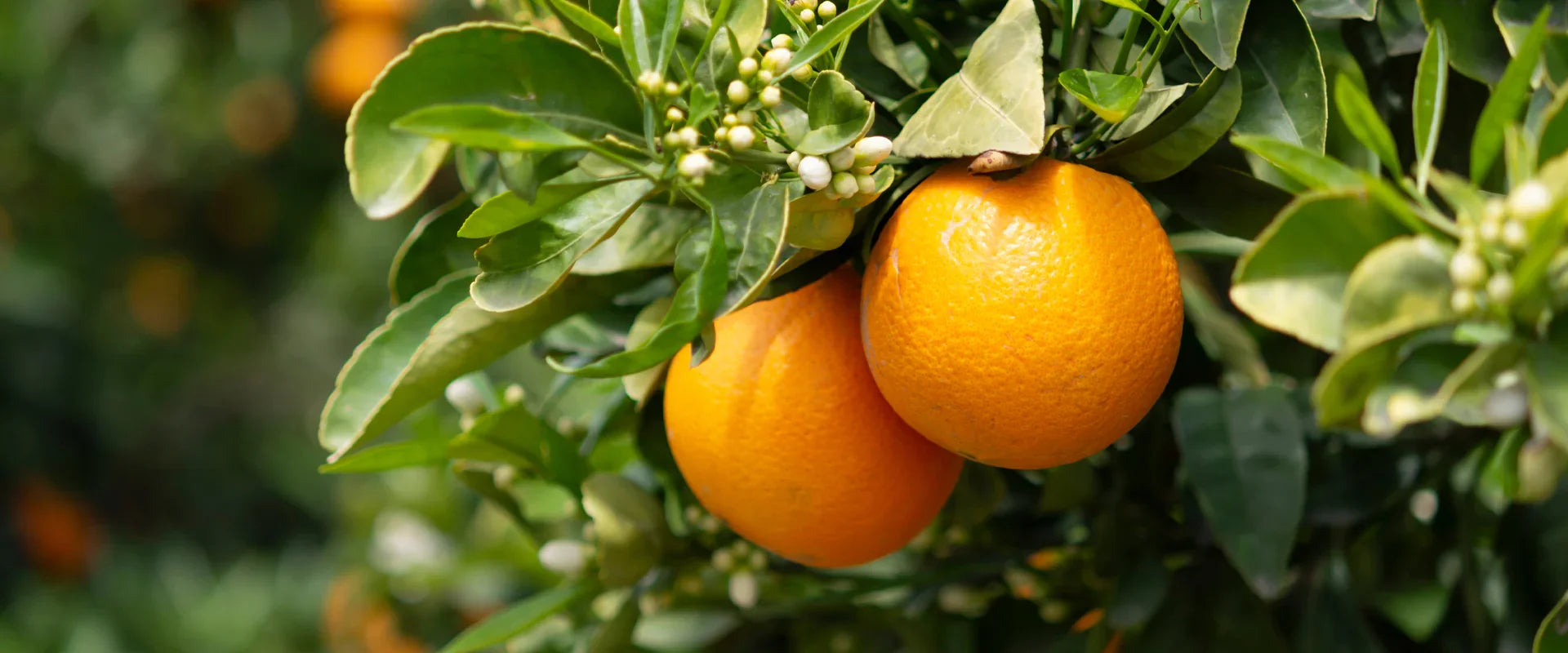
Difference between Plant Stem Elixir and Retinol

Highlights
Skincare has evolved significantly over the years, with countless ingredients promising youthful, radiant skin. Among these, plant stem elixirs and retinol stand out due to their potent anti-aging properties. While both are highly effective, they cater to different skincare needs and preferences. This blog aims to educate you on the differences between these two powerhouse ingredients, helping you make an informed choice for your skincare routine.
What is Plant Stem Elixir?
Plant stem cells are derived from the most vital part of the plant, which has the ability to regenerate and repair. When used in skincare, these elixirs can rejuvenate skin cells, promoting a more youthful appearance. The benefits include enhanced cell regeneration, deep hydration, and reduced signs of aging.
From an Ayurvedic perspective, plants like aloe vera, turmeric, and neem have been used for centuries for their healing and regenerative properties. These traditional herbs form the basis of many modern plant stem elixirs.
What is Retinol?
Retinol, a derivative of Vitamin A, is renowned for its anti-aging benefits. It promotes cell turnover, boosts collagen production, and reduces the appearance of wrinkles and fine lines. Retinol is also effective in treating acne and improving skin texture.
Ayurveda also recognizes the importance of Vitamin A, often sourced from natural ingredients like carrot seed oil and ghee, which are used to nourish and rejuvenate the skin.
Comparative Analysis
Effectiveness: Plant stem elixirs work by harnessing the regenerative power of plant cells to repair and rejuvenate the skin. Retinol accelerates cell turnover and collagen production, offering a more intensive treatment for aging skin.
Ingredients: Plant stem elixirs are derived from natural plant sources, making them a preferred choice for those seeking a more organic skincare solution. Retinol, while naturally derived from Vitamin A, is often synthesized for skincare products to ensure stability and efficacy.
Usage: Plant stem elixirs can be used both day and night, offering versatility in your skincare routine. Retinol is typically recommended for nighttime use due to its potency and potential sensitivity to sunlight.
Side Effects: Plant stem elixirs are generally well-tolerated, with minimal side effects. Retinol, on the other hand, can cause dryness, redness, and irritation, especially for those with sensitive skin. It's important to start with a lower concentration and gradually increase usage to mitigate these effects.
Suitability: Plant stem elixirs are suitable for all skin types, particularly beneficial for those looking for gentle yet effective anti-aging solutions. Retinol is highly effective for mature and acne-prone skin but should be used cautiously by those with sensitive skin.
Usage Tips and Best Practices
To get the most out of your plant stem elixirs and retinol, follow these tips and best practices:
- Plant Stem Elixirs:
- Cleanse your face thoroughly before application.
- Use a toner to prepare your skin for better absorption.
- Apply a few drops of the elixir and gently massage it into your skin.
- Follow up with a moisturizer to lock in the benefits.
- Use twice daily, in the morning and at night, for best results.
- Retinol:
- Start with a low concentration (0.25% to 0.5%) to allow your skin to adjust.
- Apply retinol at night to avoid sun sensitivity.
- Use a pea-sized amount and apply it evenly over your face.
- Follow with a moisturizer to prevent dryness.
- Use sunscreen during the day, as retinol can make your skin more sensitive to UV rays.
- Gradually increase the frequency of use as your skin builds tolerance.
Common Myths and Misconceptions
There are many myths surrounding plant stem elixirs and retinol. Let's debunk some of the most common ones:
- Misconception: Plant stem cells become human stem cells in the skin.
Fact: Plant stem cells don’t transform as human stem cells, they mainly protect and maintain the normal activities of the cells of your skin.
- Misconception: Retinol thins your skin.
Fact: Retinol actually thickens the skin by tightening the collagen, continues to build up and enhances the skin to glow and improves the skin cells.
- Misconception: Natural ingredients are better than synthetic ingredients.
Fact: Natural is always not good and safe, it’s the same way with organic additives. Both have their positives and negatives but the most essential thing is that it should serve the best to your skin and your body.
- Misconception: Plant stem cell elixir and retinol can’t be used together.
Fact: They are both strong sources and can irritate soothed skin when used but if they are to be used together, it’s better you meet a dermatologist to provide balance for your skin.
Simple Ayurvedic Remedies
For those interested in incorporating Ayurvedic principles into their skincare, here are a few simple remedies:
- Aloe Vera Gel: Apply pure aloe vera gel to soothe and hydrate the skin.
- Turmeric and Honey Mask: Mix turmeric powder with honey for a brightening and anti-inflammatory mask.
- Carrot Seed Oil: Use carrot seed oil as a natural source of Vitamin A to nourish the skin.
Conclusion
Laconically, both the offered alternatives have their own merits and should be chosen depending on one’s skin needs and personal preferences. Stem elixirs provide a gentle and effective way of anti-aging and may be used by all skin types. On the other hand, though, retinol is a more effective and potent solution, the exposure and concentration of which should be precisely controlled to prevent possible irritations.








